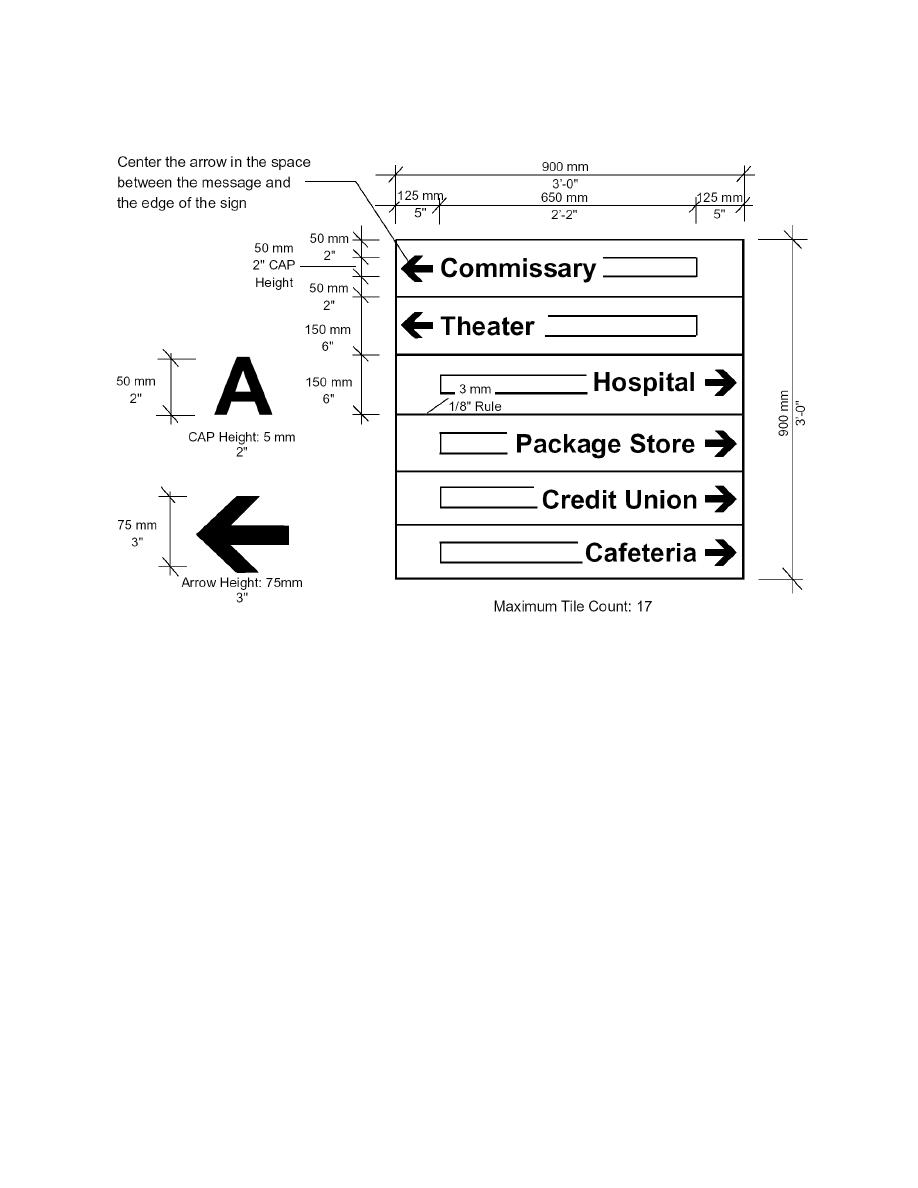
UFC 3-120-01
FEBRUARY 6 2003
Figure 8.7. Pedestrian Information Sign Type G3 Layout.
Section 8C--Base Map
8.8. Need. Most first time visitors to an Air Force base receive information at the entry gate.
Providing a base map at the time of arrival orients visitors and helps them find their destinations.
8.9. Consistency. The base map, direction signs and building and street identification signs comprise
the total orientation system outlined in this pamphlet. It is essential to use consistent nomenclature
throughout the system. The Community Center, for example, should be indicated by the same name
on the map, the direction signs, and the building identification signs.
8.10. Clarity. Design the map for clarity and ease of use. Maps created by merely reducing the base
site plan are usually too difficult to read, so the site plan must be simplified in order to emphasize
major circulation routes and destinations.
8.11. Information. The destinations most often sought by people new to the base should be clearly
named on the map. Other major destinations should be listed in a map legend keyed to building
address numbers. Housing areas may be indicated with a general designation such as "Wherry
Housing". It is not necessary to draw each housing unit.
8.12. Design. Use a halftone screen to indicate roadways. Emphasize important buildings by
increasing the scale of the buildings in relation to other buildings or by adding color. See the
170



 Previous Page
Previous Page
